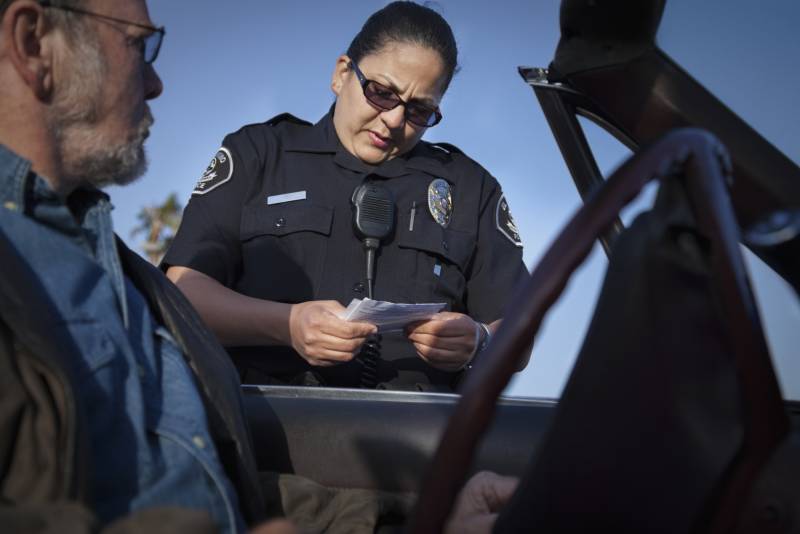“If you’re going to save another person from being harmed or killed possibly, I’m in agreement with that exception,” Buffington said, adding she was not sure if property should have been included.
However, the exception gives officers discretion to “pick and choose when they’re going to withhold certain information specifically about the reason for the stop,” Buffington said. That’s “going to open up the door to disproportionate impact on certain races,” she said.
“If [the officer] has some biases, he may be more likely to withhold some information if he stops a Black or brown person […] I think that opens up the door for racial profiling,” Buffington said.
What to know about being pulled over in 2024?
Buffington said that as of Jan. 1, if you’re pulled over by the police while driving, you can ask the officer why you are being pulled over — and then wait for an explanation.
What if an officer still does not give a reason?
In the case that an officer does not give a reason for the stop, Buffington said you should ask specifically to speak to an attorney — and not say anything further to the police officer.
“Especially if the motorist feels like it may be going in a situation that can possibly end up in that person being detained,” she said.
What if the officer wants to search my car?
As a motorist, you are protected against “unreasonable searches and seizures” under the Fourth Amendment, and an officer would need a warrant to search your car.
“Don’t consent to the search and seizure. Let the police officer go and get a warrant. Because at that point, there has to be probable cause,” Buffington said. By then, another set of eyes will be on your case — who will determine if there is enough cause to search your vehicle.
In this situation, a motorist should again ask for an attorney — but without providing any other potentially incriminating details, Buffington said.
“I think at that point, if the officer is going to arrest the motorist, then he will do that,” Buffington said. “But at least if there is a preliminary hearing, or there’s a trial later on down the line, the officer will not be able to use that incriminating statement in a proceeding.”
When ‘knowing your rights’ isn’t always enough
The Northern California ACLU has developed a guide specifically for Black and brown people in regards to their rights in police interactions.
Buffington said it helps for citizens to know about their rights and not “letting the police officer just tell them anything.” But she also said she knows about the fear and anxiety that comes with these interactions.
“It’s a police officer with the ability to alter your life in ways that are just unimaginable,” she said. “What would you do in that situation? You’re going to acquiesce, right? […] ‘I don’t want to resist or, I don’t want to be confrontational or combative because then things can really snowball out of control.’”
As for future lawmaking, Buffington said she supported more exposure of policing practices in general.
CABL is sponsoring AB 797, which would require cities and counties to establish independent civilian commissions to look into the use-of-force cases by the police. The bill is sponsored by Akilah Weber, D-79. “Giving the community the opportunity to be a part of policies and procedures that essentially affects us all,” Buffington said. “I think that’s important.”
Another California bill, SB 50 by Sen. Steven Bradford (D-Gardena), also seeks to outlaw pretext stops altogether — rather than just limiting them, as AB 2773 does. This bill would have banned police officers from stopping drivers for more minor infractions like an issue with a single brake light or headlight or the lack of a registration tag. SB 50, while approved by the state Senate in early 2023, later stalled in the Assembly — but will be taken up again this year.
